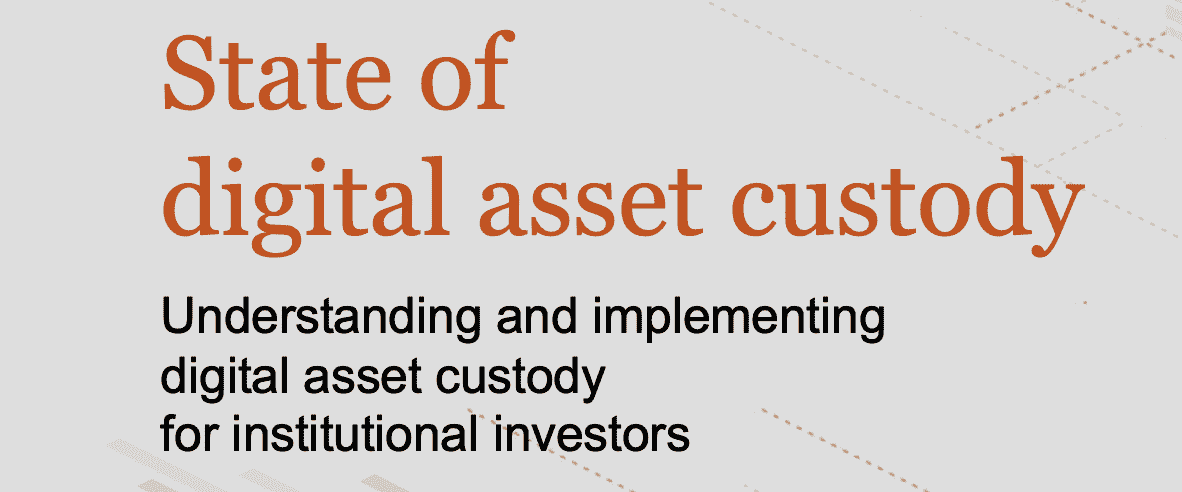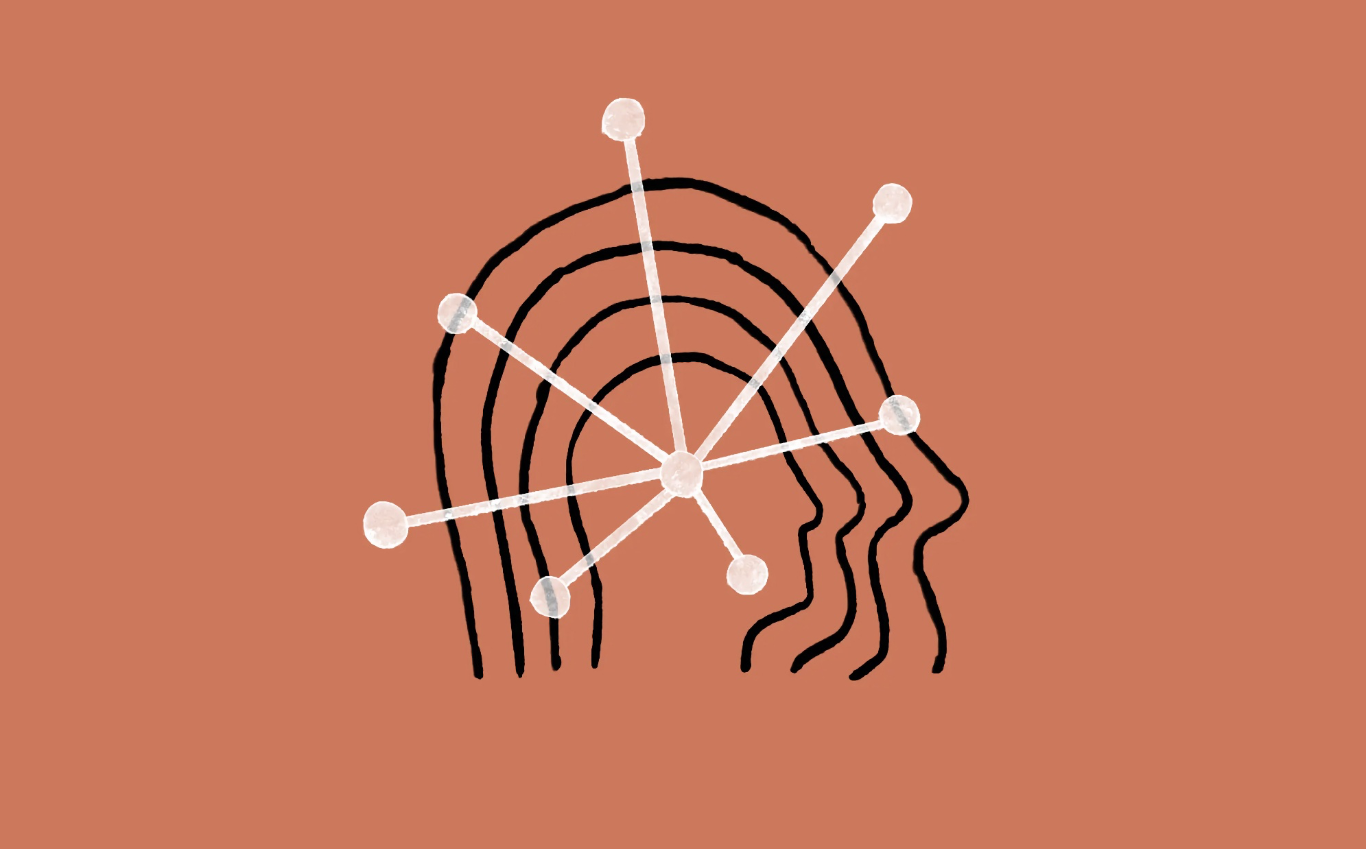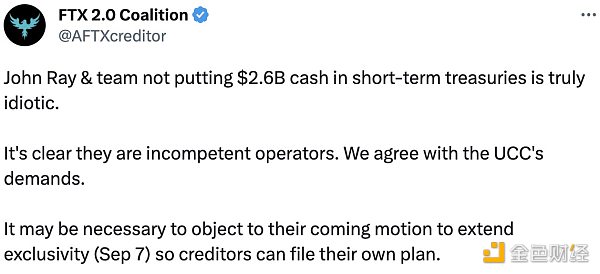Chain + Justice | Can Blockchain Win a Lawsuit After the Blockchain Is Deposited?
Text: Qin Xiaofeng
Production: Planet Daily Odaily
According to the White Paper on the Application of Electronic Evidence in China in 2018, over 73% of civil cases across the country involved electronic evidence.
At the same time, there are also many difficulties in the trial of electronic evidence.
- Visiting Professor of National University of Singapore Bai Shihuan: All rights and real assets in the real world can be tokenized
- Popular science | What is DeFi and how does it work?
- Custody and trading are not enough, investment giant Fidelity independently develops digital currency to motivate employees
Due to easy tampering, how to determine the authenticity of electronic evidence has become the primary difficulty of the case. In addition, electronic evidence is also prone to extinction. It is usually necessary to back up and store the evidence multiple times and retain the original storage medium. Furthermore, the traditional method of evidence storage takes time , Low efficiency and high cost, it is not suitable for electronic evidence.
The unique characteristics of blockchain technology, such as immutability and decentralized storage, coincide with the pain points of electronic evidence storage. Blockchain can reduce the cost of electronic evidence storage and enhance the authenticity of electronic evidence, thereby improving the efficiency of litigation.
At present, blockchain + justice has begun to be applied in multiple cities: Hangzhou Internet Court "Judicial Blockchain", Beijing Internet Court "Tianping Chain", Guangzhou Internet Court "Netcom Law Chain" and so on.
 Electronic evidence protection is not easy
Electronic evidence protection is not easy
Many legal dramas will have such a climax scene: the protagonist puts out key evidence, such as a video or voice, Jedi counterattack, and a generous statement, the judge pronounces in court and justice is displayed in an adverse situation.
But real case trials are not as simple as in the play.
It often happens that the electronic evidence is invalid because it is suspected of being illegally shot; or the authenticity of the video itself needs to be verified, and it needs to be evaluated by an authoritative institution before it can be used as evidence.
Although electronic evidence may seem powerful, it is very strict in actual case trials.
For example, before 2012, in China's laws, electronic data could not participate in litigation as independent evidence. Even after 2012, it is possible to participate in litigation as independent evidence, but the means of obtaining evidence for electronic data is also strictly regulated.
The methods for obtaining evidence include: 1. seizing and sealing the original storage medium; 2. extracting electronic data on-site; 3. extracting electronic data online; 4. freezing electronic data; 5. retrieving electronic data; 6. book-type fixing; 7. Take photos and videos; 8. Copy and copy; 9. Commission analysis.
In addition, the above-mentioned means of evidence collection shall be carried out by a notary office, a notary shall operate in accordance with the written operating procedures provided by the applicant, check the authenticity of the evidence, and finally the notary office shall produce an electronic evidence preservation notary. This is also a necessary part of the case.
In other words, even if the individual retains the relevant electronic evidence, it should be notarized at a notary office and the above process repeated to confirm the authenticity of the evidence.
The process of notarization is very time-consuming and labor-intensive, and the parties are exhausted, which also causes the case to place a considerable burden on the parties at the stage of fixed evidence.
In addition, if the parties obtain the evidence through illegal means and improper procedures, the evidence may be invalid, which is also a problem most activist parties fail to realize.
In addition, electronic evidence is easily tampered with. When the parties have notarized at a notary office, the infringing party may have modified the relevant content. When the evidence was presented in the final trial, the plaintiff and the defendant had significant differences in evidence. If the plaintiff cannot prove that the defendant modified the evidence, he may lose the case.
Furthermore, due to the consumable nature of electronic evidence, the parties must properly keep the original electronic data and make multiple copies, which undoubtedly consumes funds and energy; once the original file is damaged, the backup file must be notarized again, which again increases the case's Difficulty.
However, if the electronic evidence is kept by a notary agency or a third party, as a centralized method of depositing evidence, once this center is attacked, it is easy to cause the data of the deposit to be lost or tampered with.
In a word, there are many problems in the process of electronic evidence in the actual litigation case, and the parties have higher requirements for the ability to store evidence and provide evidence.
This difficulty in the judicial field may be solved by relying on blockchain technology.
Many readers may ask, is it illegal to use electronic blockchain for electronic evidence storage?
The answer is of course yes. In the "Regulations on Several Issues in the Trial of Internet Court Cases" issued on September 7, 2018, the Supreme People's Court recognized for the first time that electronic data stored on the blockchain can be used to provide evidence in Internet cases, marking the block in China The technical method of chain certificate is recognized by judicial interpretation.
"Can electronic data be verified in a specific form. The electronic data submitted by the parties is obtained through electronic signatures, trusted time stamps, hash value verification, blockchain and other evidence collection, fixing and tamper-resistant technical means, or through electronic forensics The internet court shall confirm if the certification of the certificate deposit platform can prove its authenticity. "
 Blockchain empowers justice
Blockchain empowers justice
As a new technology, the blockchain adopts distributed ledger technology, which has characteristics such as immutability, decentralization, and trustlessness, and meets the needs of electronic evidence storage in the judicial field.
In the entire life cycle of the generation, collection, transmission and storage of electronic evidence, the blockchain and its extended technologies can secure electronic data, prevent tampering, and conduct audit trails of data operations, thereby providing relevant institutions with audit trails. Effective means.
In the following, we will use the "Judicial Blockchain" of Hangzhou Internet Court as a case to explain the specific working principle.
Judicial blockchain is an alliance chain, which is supported by the ant blockchain of Ant Financial Services, and is supported by more than 20 institutions such as notary offices, judicial appraisal centers, and time service centers.
At present, the judicial blockchain can mainly resolve three types of disputes: digital rights, financial contracts, and network service contracts.

Users can upload their digital works to the judicial blockchain, and each node of the judicial blockchain will review the work, record the electronic data that needs to be stored in a transaction, stamp it, and package it on the chain. Generate a unique hash value to the user.
The privacy scheme based on data encryption and decryption technology is also an important part of the judicial blockchain. Other users can only see one hash value and cannot see the original electronic data corresponding to the hash value, which also protects the privacy of the parties. At present, the total number of certificates on the judicial chain has exceeded 1.9 billion.
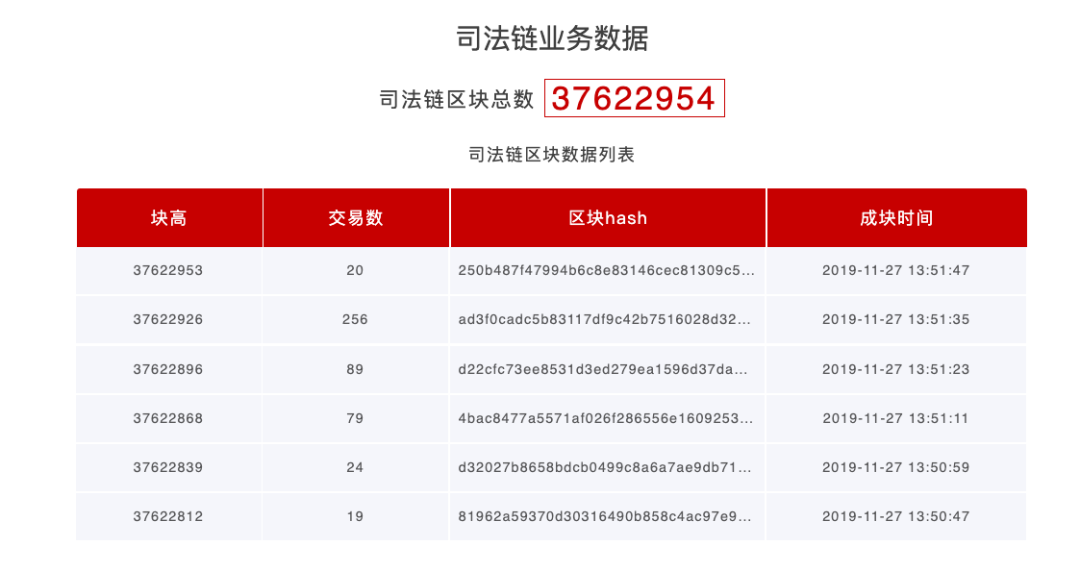 (Only the hash value on the blockchain)
(Only the hash value on the blockchain)
In addition to confirming rights, the judicial blockchain will also start infringement monitoring at the same time. Once it is detected that others have used the digital work, it will automatically solidify the evidence and provide electronic evidence for subsequent prosecutions.
The above process is actually equivalent to simplifying the process of the notary office, so as to efficiently fix the evidence.
In addition, if users find that other people have infringed their copyrights, they can immediately sue online in Hangzhou Internet Court.
Odaily Planet Daily experienced the entire process of prosecution. From registration, selection of case, filling in the plaintiff, defendant and other information, the entire case prosecution process took less than 20 minutes.
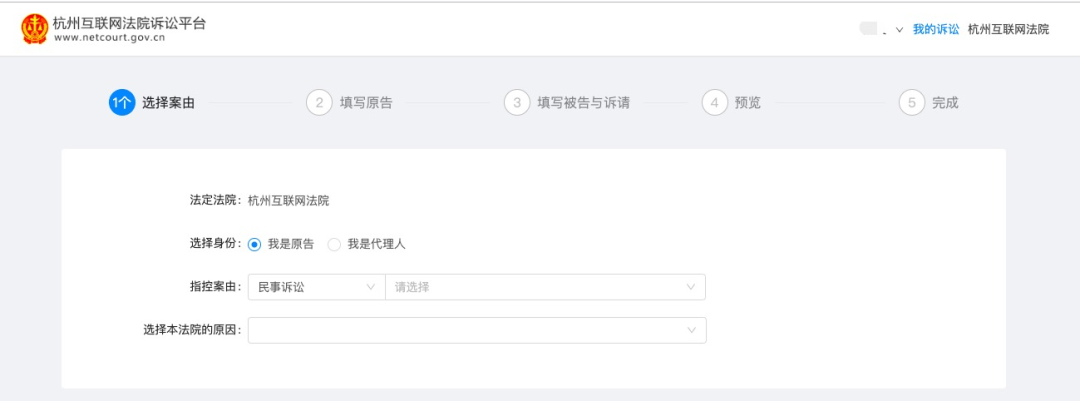 (Full process of prosecution)
(Full process of prosecution)
It is worth noting that, when submitting evidence, the parties can enter the copyright hash value or infringement hash value of the previously registered works without having to repeatedly upload evidence, which also simplifies the case handling process.
 (Submission of Evidence)
(Submission of Evidence)
Of course, in addition to the judicial blockchain, the Hangzhou Internet Court also supports evidence from other depository platforms or uploads evidence locally.
From the beginning of the litigation of the parties, key links that affect the quality and efficiency of the trial and affect the credibility of the judiciary, such as mediation, filing, service, proof of evidence, trial, judgment, execution, will be covered with the "stamp" of blockchain.
These "stamps" contain key information such as trusted time, trusted identity, trusted process, trusted environment, etc., and broadcast to all nodes of the blockchain in real time, leaving traces throughout the process, being safe and controllable, and cannot be tampered with, which can be effective Prevent and reduce disputes. The entire process records are uploaded to the chain, further ensuring the authority and transparency of the judiciary.
In addition, Hangzhou Internet Court further launched smart contract services at the end of October this year. Judicial blockchain smart contracts have the capabilities of "credit blacklist" and "credit whitelist" and are currently operating in the field of network services and online finance.
In a smart contract, the contract signed by the two parties will be saved in digital form, and the contract can be performed automatically after the corresponding conditions are triggered. For example, the two parties signed a sales contract, and the contract was stored on the chain in digital form. If the buyer confirms that the goods are correct, the payment will be automatically credited to the seller's account when the agreed date is reached.
In the experience, Odaily Planet Daily also noticed a particularly humane element in the judicial blockchain. Because the trial of a case involves personal privacy, the judicial blockchain has also encrypted the protection of such cases. Users can only see the reason of the case, etc., and they cannot see the relevant privacy information.

The judicial blockchain is also in practical application, which improves the efficiency of case trials. Wang Jiangqiao, executive vice president of the Hangzhou Internet Court, said that after using judicial blockchain technology, due to clear facts and clear evidence, the pre-litigation mediation withdrawal rate of intellectual property disputes in the Hangzhou Internet Court has exceeded 90%.
At present, "blockchain + justice" has been rolled out in various provinces and cities across the country, showing a trend of sparking fire. Specific cases are:
- Electronic evidence platform of Jilin Provincial High People's Court
- Electronic evidence platform of Shandong Higher People's Court
- Beijing Internet Court "Tianping Chain" Electronic Evidence Platform
- Guangzhou Internet Court "Netcom Legal Chain"
- Zhengzhou Intermediate People's Court Electronic Evidence Platform
- Electronic evidence platform of Chengdu Dudu District People's Court
Many challenges remain to be solved
The application of blockchain in the judicial field has indeed resolved many disputes and improved efficiency, but there are also some shortcomings that need to be resolved urgently.
First, the blockchain certificate is not equivalent to legal facts, and the authenticity of the certificate data needs to be verified.
For example, the reporter uploaded an article from the Odaily Planet Daily on the electronic evidence platform of the Jilin Provincial High People's Court on November 26, and obtained two certificates, as shown below:
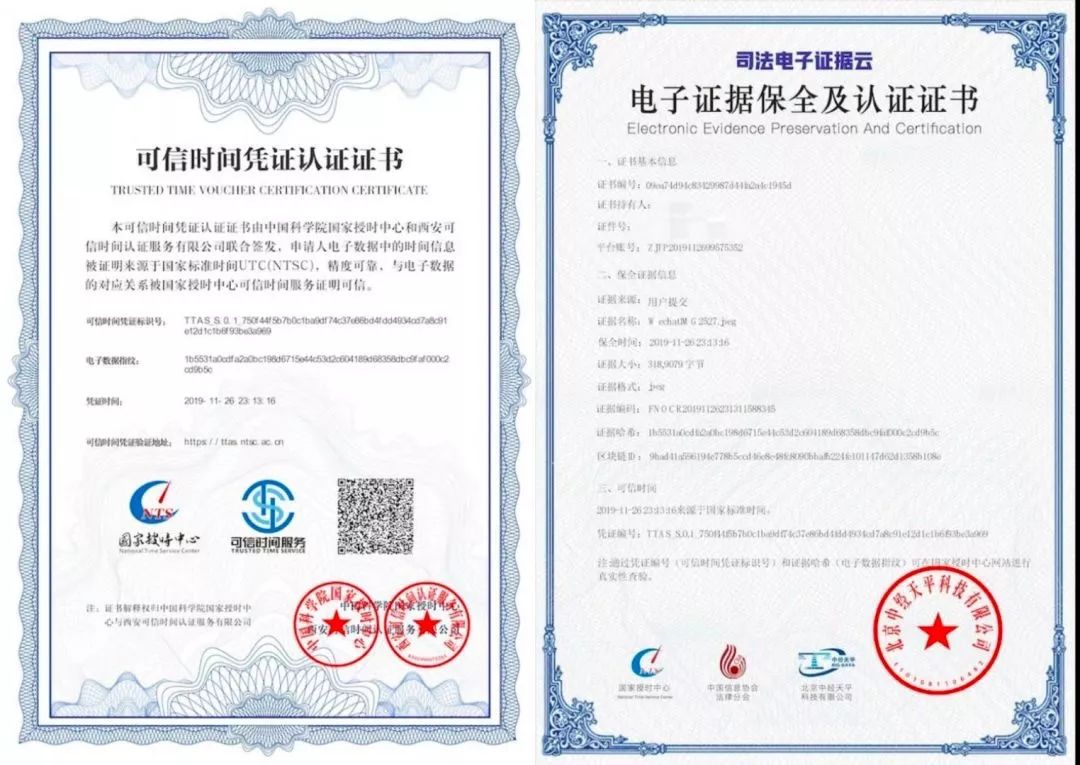
However, this certificate cannot actually prove that the article was actually written by a reporter, it can only prove that the reporter was the first to register the copyright certification of the blockchain. Assuming that this article is not original, the original author can still sue journalists with evidence of the time of writing.
Like the challenges encountered in the application of many blockchains in practical scenarios, how to ensure the authenticity of data before it is put on the chain is also a difficult problem on the way of "blockchain + justice".
Therefore, in the actual testimony of the court, if there is no original corresponding to the hash value, the deposit will not be able to achieve the purpose.
Therefore, the Odaily Planet Daily also reminds all parties to properly keep electronic originals, and data on-chain is not foolproof.
Second, the scope of copyright infringement monitoring is relatively narrow, and there is uncertainty about the definition of infringement.
After the reporter uploaded the article, the blockchain certificate system only monitors the system. Although the article was previously published on more than a dozen platforms, the system has not yet been detected.
 (Article monitoring is 0)
(Article monitoring is 0)
As a last resort, reporters can only manually search for screenshots and fixed evidence of relevant web pages.
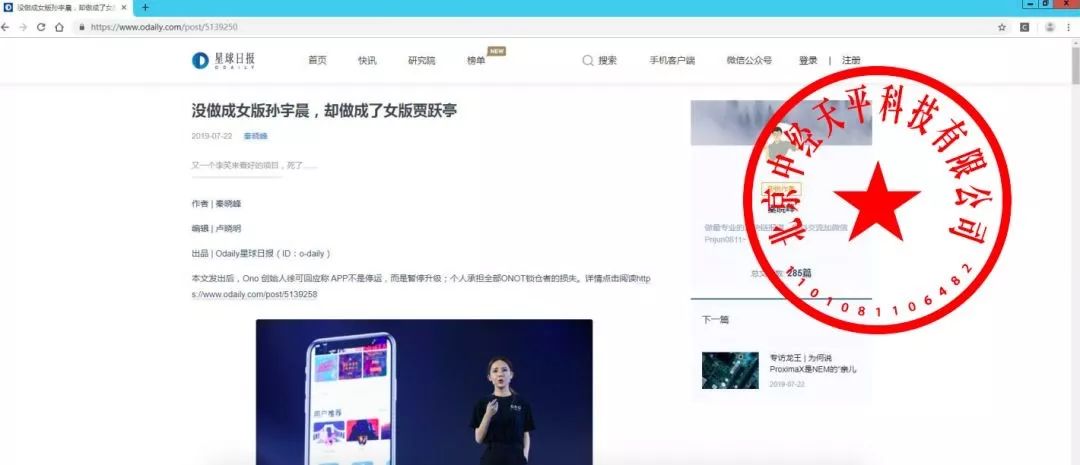
(Be a demonstration, use your own platform for screenshot monitoring)
In addition, when the reporter deleted and spliced the article and washed it, he could still obtain blockchain copyright certification again. The definition of infringement standards is not clear, and it is also a difficult problem in practical law.
Furthermore, the depository systems cannot be interconnected with each other, which hinders the handling of cases across regions.
After the blockchain hash value was generated by the Jilin High Court Evidence Platform, the author submitted it to the Hangzhou Internet Court and found that it was difficult to read the evidence and split each other. As for the effectiveness of cross-regional blockchain evidence, the courts around the country have not yet given a clear answer.
If not, does this mean that the user needs to re-submit the evidence, but at this time, the best fixed time for the evidence may have been missed, and what should be done?
Finally, the acceptance of blockchain evidence among the public needs to be improved.
As a new thing, the blockchain has only been developed for more than ten years, and the technologies themselves are still immature. In addition, the previous MLM coins have also stigmatized the blockchain. Can the public accept this new Technology is yet to be tested.
Even if the public is willing to accept it, there is still a certain lack of understanding about blockchain technology. Perhaps it will take some time to get used to it.
The development process of things is always going up in spiral or wave. Although the application of blockchain in the judicial field is somewhat problematic, after all, it is a recipe for improving efficiency by technical means.
In the future, we may see a more complete judicial system under the blessing of blockchain technology.
References:
Zhejiang: "Internet +" rule of law promotes social governance modernization
Blockchain Judicial Depositary Application White Paper-China Academy of Information and Communications Technology
We will continue to update Blocking; if you have any questions or suggestions, please contact us!
Was this article helpful?
93 out of 132 found this helpful
Related articles
- Li Lihui, Former President of Bank of China: To Study Issuance of Global Digital Currency Dominated by China (full text)
- Research: US Treasury submits report in support of blockchain sandbox
- Former President of Zhejiang Commercial Bank Liu Xiaochun: Seven Conjectures of the Bank of China on Digital Currency
- IBM Global Central Bank Digital Currency Survey: Retail Central Bank Digital Currency-The Next Payment Boundary
- DeFi observation for a week: stablecoins and smaller market value tokens become the next major growth point
- People's Political Consultative Conference: How to Promote the Development of Digital China with Blockchain Technology
- German media: Germany is entering a "cryptocurrency paradise", new bill allows banks to sell cryptocurrencies such as Bitcoin

